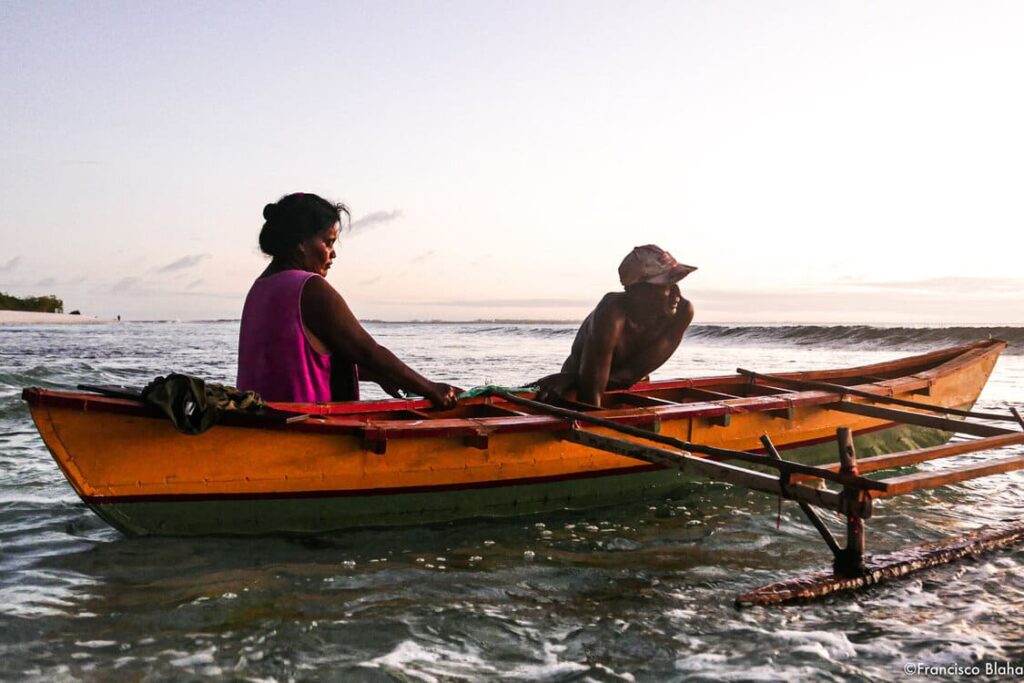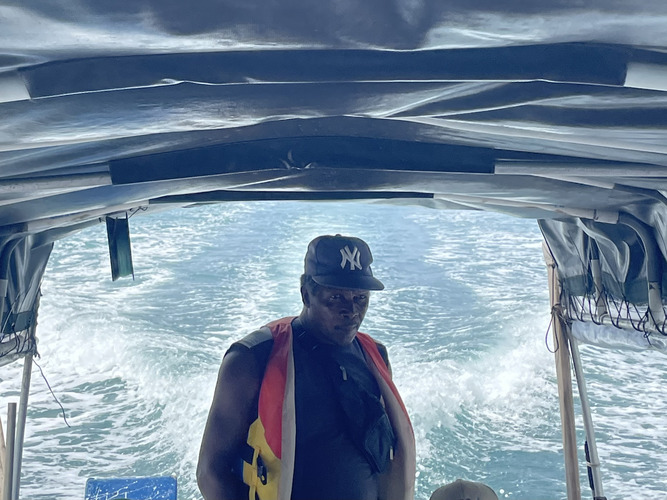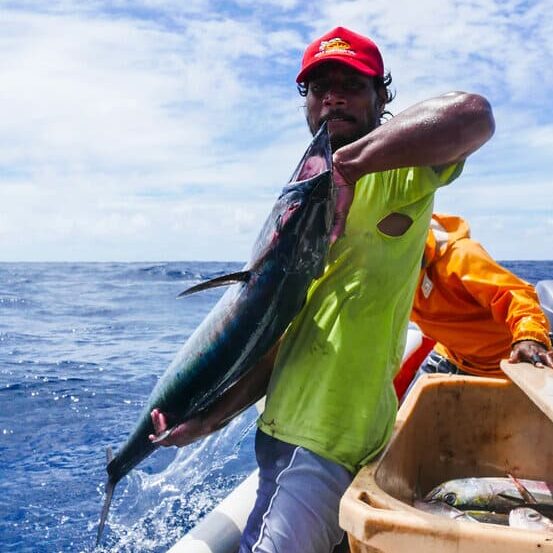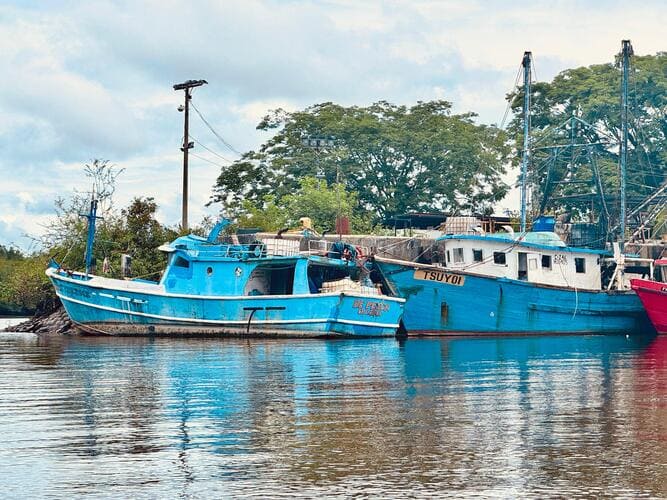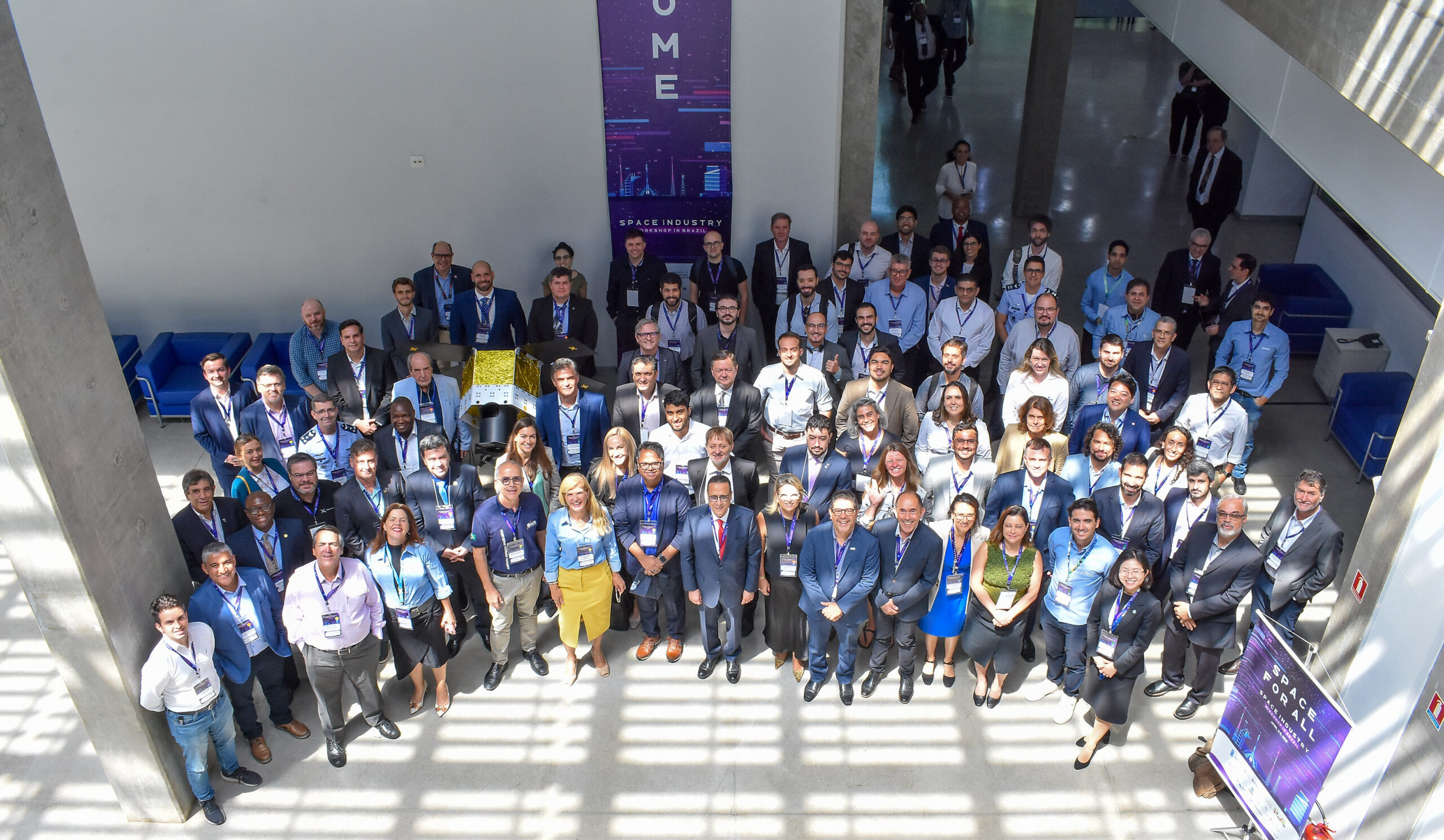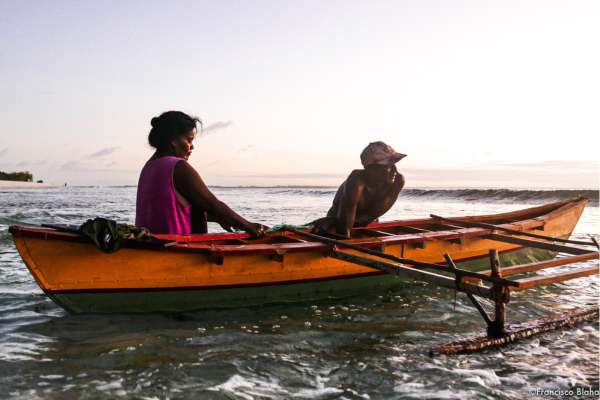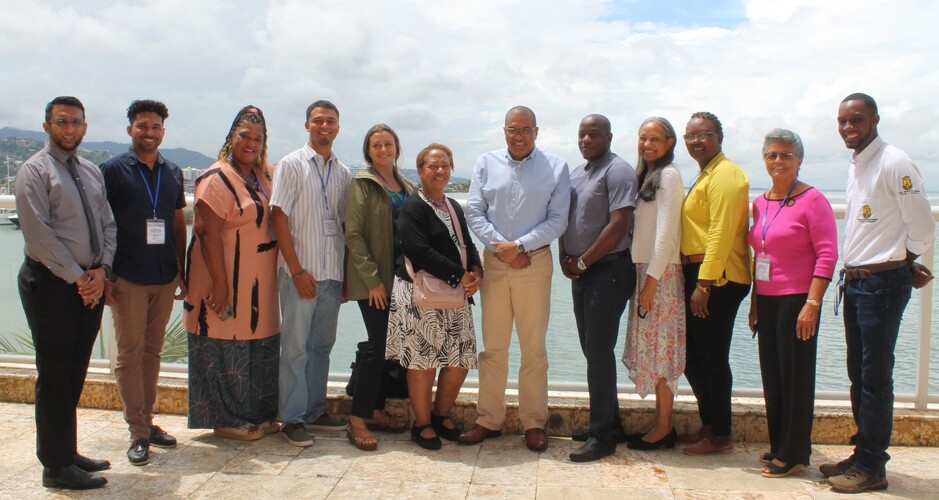Written by:

Lucas Mira
The Caribbean Sea is a large interconnected marine ecosystem. Covering an area of 3.200.000 km2, of which only 3.9% is protected, it contains 7.1% of the world’s coral reefs including the second largest barrier reefs, and it is a huge biodiversity hotspot1. The Caribbean Sea is also home to many Small Island Developing States (SIDS), most of which are highly dependent on fisheries resources both as a source of livelihood and food security.
As someone deeply entrenched in the world of blue economy, fisheries, and climate change, I have been analyzing the Caribbean’s complex landscape of marine conservation and fisheries management, and I am here today to share for the first time my reflections on two major challenges that the Region is facing. Firstly, how to ensure the effectiveness of Area-Based Management Tools (ABMTs), including Marine Protected Areas (MPAs) under a changing climate. Second, how to promote greater collaboration across governments and promote transboundary fisheries management.
To support my analysis, I interviewed two important personalities in the field of fisheries management. Mr. Milton Haughton, the Executive Director of the Caribbean Regional Fisheries Mechanism (CRFM), leading authority on Caribbean fisheries management. With over 44 years of work experience in fisheries and marine resource governance and management in the Caribbean, Mr. Haughton has shaped key policies and initiatives across the region and thus has a unique understanding of climate impacts on fisheries and how these impacts are being managed in the Caribbean through Marine Area-Based Management Tools and international collaboration.
The second expert is Francisco Blaha, a highly experienced fisheries consultant, with a remarkable track record of working in over 55 countries, and collaborating with development organizations, technology providers, and NGOs. Mr. Blaha is a highly respected figure in the South Pacific fisheries sector, a doer, a man of the ocean and shares invaluable lessons from the Pacific Islands, which can be leveraged to enhance fisheries management and marine conservation in the Caribbean.
Area-Based Management Tools, their role and challenges under a changing climate
ABMTs are spatial instruments for conservation and managing different forms of ocean use. A multitude of ABMTs exists in marine areas within and beyond national jurisdiction, ranging from tools for the regulation of specific human activities to cross-sectoral tools.2
Marine Protected Areas (MPAs) have a critical role to play in the management of complex challenges facing marine ecosystems. These specially designated zones, with their varying levels of protection and management strategies, act as strategic instruments to safeguard marine biodiversity, habitats, and support climate adaptation.
But, whilst MPAs are hailed as a key conservation tool, their effectiveness hinges on broader ocean management strategies and political commitment. According to Mr. Blaha, for MPAs to be truly effective in marine conservation, they require careful site selection and robust enforcement; additionally, they must be designated as no-take zones, fully closed, and protected to ensure the safeguarding of coastal fisheries. He also states that ‘the lack of control and supervision in MPAs is a recurring problem that must be addressed by governments to guarantee their effectiveness.’ But how do you ensure control over marine resources, when changing oceanic conditions are driving changes in fish migration patters and population dynamics?
Fish resources in this region are typically transboundary and shared among multiple nations over short distances. Climate-induced changes to their distribution and abundance could therefore, as Blaha remarked, impact fisher access under current management arrangements, and may require changes to multi-lateral or international agreements and quotas. Imagine a historical fish stock off the coast of a low-income island nation migrating away due to chemical, physical, or biological changes. What would happen to the country’s primary economic activity? Would the islanders be forced to seek new livelihoods or even abandon their homes? What will happen to food security on these islands? The ultimate question is: Are we prepared to have these crucial conversations and face the potential challenges head-on?
Policymakers are now more aware than ever of the need to act quickly to strengthen the management plans for coastal marine resources in light of the recent trends in the distribution and abundance of the major stocks as well as the uncertainties surrounding climate change. Even though work is still needed, many nations have made significant progress in creating plans for the management of their fisheries, improving the control of fishing effort (by licensing, creating a coastal zone for various harvesting methods, and implementing a rights-based approach to coastal fisheries and co-management)3.
While MPAs focus on long-term biodiversity and ecosystem protection, fisheries management aims to sustainably manage fish stocks for optimal yield: The primary goal is to ensure the sustainable productivity of fishery resources while achieving other fisheries-related objectives.4 Perceiving this as a dichotomy hinders progress towards shared sustainability goals among fishers and conservationists.
Collaboration: a critical principle for transboundary management of climate risks in the fisheries sector
In the Caribbean region, where resources are often limited, significant steps have been taken to develop robust policy frameworks to enhance collaborative fisheries management. As noted by Mr. Haughton, “the Caribbean Community Common Fisheries Policy (CCCFP) serves as a cornerstone for sustainable fisheries development and marine ecosystem protection.” He highlights that “the protocol addressing climate change and disaster risk management within the fisheries and aquaculture sectors underscores the region’s commitment to tackling climate change and its impacts.” By optimizing limited resources through collaborative efforts at regional, national, and local levels, the CCCFP aims to ensure proper development, sustainable management, and protection of fisheries. Mr. Haughton emphasizes that “this collaborative approach, spearheaded by the Caribbean Regional Fisheries Mechanism (CRFM) as part of the Caribbean Community and Common Market (CARICOM), is crucial for achieving a cohesive strategy and maximizing the potential of available resources.”
Over time, various organizations have emerged to address different facets of fisheries governance in this region. Notable among these are the Western Central Atlantic Fisheries Commission (WECAFC) of the FAO, CARICOM and its Caribbean Regional Fisheries Mechanism (CRFM), and OSPESCA, which includes Central American countries. Additionally, the International Commission for the Conservation of Atlantic Tunas (ICCAT) plays a significant role with its Atlantic-wide mandate covering large pelagic species in the Caribbean. These organizations strive to manage and conserve the marine resources critical to the region’s ecological and economic well-being, but the lack of a unified political authority remains a substantial barrier to holistic governance. But despite these efforts, the Caribbean region remains nonetheless somewhat fragmented from a geopolitical standpoint, with multiple overlapping regional authorities. This fragmentation poses a significant challenge to achieving cohesive regional marine fisheries governance.
Mr. Haughton emphasizes the critical importance of regional collaboration in the Caribbean: “For us in the Caribbean, regional collaboration is extremely important because most of the resources are transboundary in nature. The Caribbean Sea is defined as one large marine ecosystem. It is a semi-enclosed sea where resources are shared.” He further elaborates, “We recognize the importance of regional cooperation and collaboration. Hence, we have many organizations like CARICOM and mechanisms to facilitate cooperation among countries. Without effective cooperation, we cannot manage these transboundary resources and ecosystems effectively.” Highlighting ongoing efforts, he adds, “We have developed partnerships and agreements with our Central American counterparts and international organizations like the UN Food and Agriculture Organization and the Western Central Atlantic Fisheries Commission. Various projects, such as the GEF-funded Blue Economy project (BE-CLME+ Project), are aimed at strengthening marine protected areas and improving marine spatial planning across the region.” Mr. Haughton underscores that coordinated actions across jurisdictions are essential for sustainable development and effective marine resource management.
In my conversation with Francisco Blaha, he highlighted the Pacific Islands Forum Fisheries Agency (FFA) as a beacon of success in the fisheries sector. This agency, representing 17 nations, many of them being SIDS, demonstrates a model of effective collaboration and dedication to enhancing national capacity and regional solidarity. FFA’s comprehensive services, including policy advice, technical assistance, and capacity building, support its member countries in ensuring the sustainable use of fisheries resources and maximizing benefits for Pacific communities. And crucially, the Harmonised Minimum Terms and Conditions for Access by Fishing Vessels (MTCs), which is one of FFA Members’ key tools to regulate fishing access to their waters. They are a mechanism for setting agreed standards to apply in all FFA Members’ EEZs in support of the effective management of their fisheries resources. The MTCs apply to foreign fishing vessels licensed to fish in the EEZs of FFA Members. FFA Members can also apply them to their domestic fleets5.
The FFA’s success story could serve as a shining example for the Caribbean, showcasing the potential for improved fisheries management and a brighter future for the region’s resources. By following in the footsteps of FFA and embracing a similar approach, the Caribbean can pave the way for sustainable fisheries practices and enhanced regional cooperation.
The Caribbean is at a crucial crossroads in its quest for sustainable fisheries management and marine conservation. While its waters boast stunning beauty and teem with life, they also face looming threats. Now is the time for decisive action, drawing from our past experiences and looking towards a brighter future. International collaboration is not just a concept; it’s our lifeline. It offers a clear path to preserving marine biodiversity, building climate resilience, and securing the futures of coastal communities. The success of the Pacific Islands, where nations have united in collaboration and solidarity, serves as a beacon of hope and possibility.
As we look ahead, let us not forget the importance of capacity building, community engagement, robust policy frameworks and systems for monitoring, control and surveillance to ensure compliance with agreed conservation and management measures. These are the pillars upon which sustainable fisheries management rests. As Mr. Haughton emphasizes, “To make our communities more resilient, it’s crucial to empower them to plan and take action. Local communities need to understand the issues, and challenges in the sector and build their capacity participate in planning and decision-making for a resilient and sustainable future. We must do everything we can to improve resilience in our coastal communities and marine ecosystems. Enhancing governance and management of our fisheries is critical to this effort.” By investing in our people, empowering our communities, and enacting sound policies, we can ensure that the Caribbean region continues on the path towards becoming a beacon of marine conservation excellence.
-
[5] “THE HARMONISED MINIMUM TERMS AND CONDITIONS FOR ACCESS BY FISHING VESSELS.” , 2019.
https://www.ffa.int/download/minimum-terms-and-conditions/
Related posts
sign up our newsletter
ITACA Solutions is a technical services provider focused on implementing climate adaptation in coastal areas in the Caribbean. Sign up to our mailing list to receive our newsletter with updates about our work, publications, activities and events.

